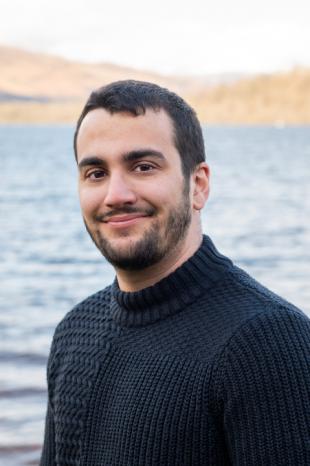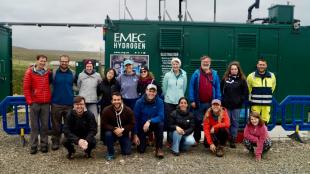EDF as a Sponsor
As members of the former Energy Technologies Institute, which funded the first phase of IDCORE, EDF has been the most consistent sponsor of IDCORE Research Engineers. The advantage of this for Prokopis is that he is able to build on the work of other IDCORE projects that have gone before.
There are pros and cons of being sponsored by a large company, but it does provide opportunities to be part of large projects and to draw on a wide range of specialisms, particularly in a company like EDF which places so much value on research. And EDF certainly appears to value its relationship with IDCORE as a source of well-trained, high quality researchers, for the connection it provides to leading academic renewables capability in the UK, and for the way it links them in to UK state of the art research.
New Experiences
The whole IDCORE journey has been one of adaptation for Prokopis. He grew up in Greece where he studied for his first degree, a Masters in Mechanical Engineering, at the National Technical University of Athens. He then came to Edinburgh for the first year of IDCORE, and he is now based in Paris working at EDF’s R&D Dept in both Chatou and Saclay.
His project is to develop a numerical prototype, an aero-hydro-servo elastic simulation of a semi-submersible floating offshore wind turbine. This uses a large number of simulations on a computing cluster, to model the performance of the device over its whole life. The work has made him highly conversant with some of the proprietary numerical modelling tools that EDF uses, and alongside his project he has been able to get involved in the benchmarking of different numerical codes.
Benefits of IDCORE
When Prokopis decided to pursue a post-graduate qualification rather than going straight into industry it felt like he was taking a risk, but that risk is paying off. But then the EngD model used by IDCORE isn’t like other PhD-level qualifications – it creates an excellent balance between a high-quality academic qualification and delivering applied research that meets the needs of industry. It provides some autonomy and freedom to pursue your own line of research, whilst providing a focus on outcomes that will deliver impact in a broader industry context.
The first year of IDCORE allowed him to specialise further in renewable energy technologies while being paid, which helps financially given the higher costs of studying in the UK now as an EU citizen. It also gave him a new set of friendships that he knows will out-last his time with IDCORE, as well as providing a group of highly supportive and motivational colleagues.








